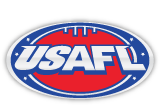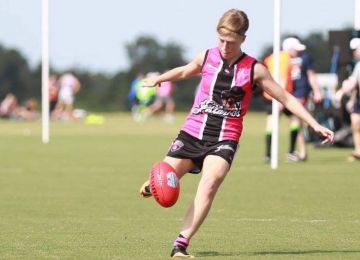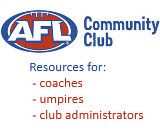The Same Amount of Blood, Sweat, and Tears: Women's Footy
|
|
By Jacob Trask
Winter in Washington is an uninviting environment for outdoor activities. The trees are bare, the grey skies menacing, and streets void of the bustle of subsequent seasons. Yet, at 6pm each Wednesday evening in February, one would find at West Potomac Park several DC women huddled, running, and tackling with an odd-shaped ball.
The game has a certain grace to it. It moves with the body, with a continued battle and physical scrap around midfield. But it progresses with the feet, with hasty, high-flying punts and contested leaps for the ball and better position. The scores are swift and prolific, and the scoreboard runs high. There are incredible plays, beautiful passes, bruising hits, and bloody faces. It’s a game unlike any other, but many are unaware that it exists. And women who have always desired to play a full contact sport, but may have been hesitant to jump into American football or Rugby, may be able to find their niche in Australian rules football.
Although Australian football traces back to the 1960s in America, it has remained under the radar, even since the creation of the the United States Australian Football League (USAFL) in 1996. Unlike other American sports like softball and lacrosse, the women’s version of the game is exactly like the men’s. This means it has the same amount of contact, and the same amount of blood, sweat, and tears. That is exactly why Australian Football, commonly referred to as “footy”, should have some real appeal for women who have not had the chance to play tackle sports.
The Baltimore-Washington Eagles are one of the most talented footy clubs on the east coast, and with their efforts in promoting the team, they are quickly becoming a valued piece of the D.C./Maryland sporting community. A large portion of these efforts has been aimed at boosting the number of players for the women’s club, which currently sits at 19. A full team has 22 players.
Along with word-of-mouth and social networking, the club has worked hard to bring exposure.
Alex Pike, a five-year veteran with the Lady Eagles, said that boosting the roster numbers has been difficult for a number of reasons.
“It’s tricky in the region we’re in because a lot of people move here for a couple years and then leave,” Pike said. “We’ve gotten a few people through meetup.com, but they’ve come and gone through injuries or just other life events.”
Pike said that the best way to get women to stay with the team is to get them on the field and show them how fun it is. And as someone with a diverse sports background and a veteran of footy, her word is hard to discredit.
Pike was a soccer player and a member of her track team in high school, but took a small hiatus from sports in college. After four years without playing a physical game, she was introduced to footy by her husband, who is a member of the Eagles’ men’s team. Pike thinks footy is very unique because it draws skills from so many different sports.
“It moves fast like soccer. Soccer players transition well because they’re good on their feet. But it also draws from basketball, rugby, and basically anything that people have played,” Pike said. “There’s a position on the field for someone no matter what their sports background is or what their strengths are.”
On June 11, the club set up a tent at the 42nd Annual Pride Festival and had just under 100 people sign up to show their interest in playing with the club. Many of those signees were women, who were invited to attend the Eagles’ women’s footy clinic the following Saturday.
The clinic was held in Bluemont Park in Arlington, and the Lady Eagles saw a fair share of new recruits.
One in particular was Marissa Mullins, who learned the ins and outs of the game for the first time at the clinic. After playing collegiate soccer and spending years in a co-ed league, she was interested in finding a full-contact sport. Mullins discovered the club through their tent at the Pride Festival, and after spending some time at a rugby tent, she stumbled upon the Eagles.
Mullins said that she is not at all nervous about the contact, and thinks that her soccer experience will prepare her for the tackling of footy.
Kristin Poti, another newbie to the game, had a slightly different opinion.
“I’ve never actually played in a contact game,” Poti said. “I’m excited about it, but I’m a little nervous cause I’ve never done any sport with tackling.”
Poti has a prolific sports background in field hockey, softball, and track, and will likely find her niche on the field when it comes time to lower the shoulder.
Karen Stablein is in a much different position than Mullins or Poti. She has played footy with the Eagles since 2009, and has been a member of the Women’s National Australian Football Team since 2011. Stablein got involved in the game through her brother and used her extensive sports background to become one of the most talented female players in the country.
Stablein acknowledges the nerves of women who have never played a contact sport.
“A lot of women are unwilling to take the step into tackle. They kind of build it up in their heads as something that’s a really big deal, but once they get through that, they realize that it’s a lot of fun and it’s not as big of a deal as they were making it out to be,” Stablein said. “A lot of times, women actually embrace the aggressiveness of the sport more than men because they’ve never had the opportunity to play a contact sport.”
On June 23, the Lady Eagles participated in the USAFL Eastern Regional Tournament, and joined forces with the Columbus Jillaroos against a combined team of women from the New York Magpies, Boston Demons, and the Philadelphia Hawks. Although the Eagles’ team lost the match 43-30, the Eagles’ women showed immense promise, and fielded many new recruits, including Marissa Mullins.
The club will continue their recruiting efforts, and won’t stop trying to break any kind of stereotype against women playing tackle sports.
“We fight stereotypes on all sides,” Stablein said. “First, we fight the stereotype that tackle sports are inherently unfeminine. That, I think, is something that’s gendered, and that’s not actually a reality. There’s no difference in the capability or ability to play tackle sports. It’s what society tells people about what they should or shouldn’t be doing. What we’re trying to do is make it seem accessible.”
|
|
|






